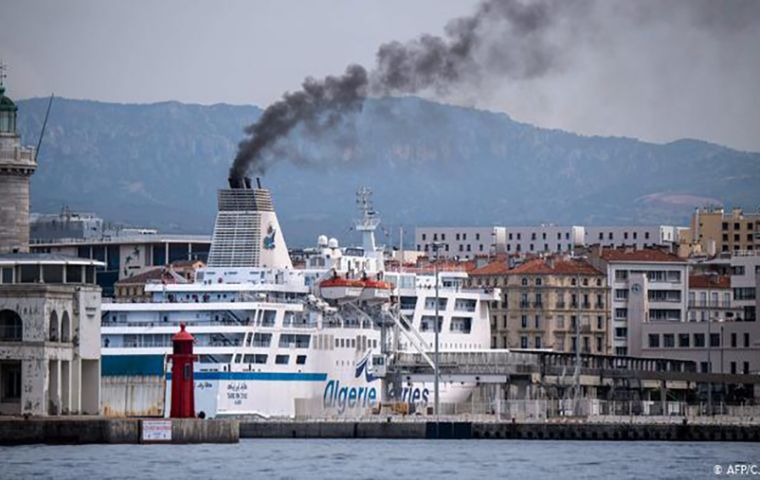MercoPress. South Atlantic News Agency
Maritime industry trying to cut the use of heavy polluting fuels
 Led by IMO, the industry is considering several options to replace so-called heavy fuel oil that propels over 60,000 vessels, including tankers
Led by IMO, the industry is considering several options to replace so-called heavy fuel oil that propels over 60,000 vessels, including tankers Ship-owners say they are trying to cut their heavy-polluting industry's impact on the environment by using cleaner energy - but some have stalled over limiting the speed of ships.
Led by the International Maritime Organization (IMO), the industry is considering several options to replace so-called heavy fuel oil that propels over 60,000 vessels, including tankers, used in the global transportation of goods.
Last week, the IOM met in London to discuss options with other industry players.
“The IMO's ambition can only be realized with the development and application of technological innovation and the introduction of alternative fuels, which means low- or zero-carbon fuels should be made available soon,” said its secretary-general Kitack Lim.
French companies are driving the development of new ships that can run on less-polluting liquefied natural gas, but that does require suitable storage facilities and engines.
The new technology is gaining support from energy majors, such as Royal Dutch Shell.
“Maritime transport is very polluting and yet is the last sector not to have been regulated,” Faig Abbasov of Belgian NGO Transport and Environment said.
Maritime transport accounts for 2.3 per cent of CO2 emissions, according to Armateurs de France representing shipping companies. This compares with 2.0 per cent for air transport, according to the International Civil Aviation Organization.
The IMO has in the meantime decided that from next year sulphur content in heavy fuel oil will be cut to 0.5% from 3.5%.
This is expected to be achieved by the use of “scrubbers”, or exhaust cleaning systems fitted to ships, that reduce the amount of sulphur emitted into the environment.
Meanwhile, a large section of the French maritime sector recently voted to limit pollution by reducing ships' speed, a move supported by President Emmanuel Macron.
The ecological benefit is exponential: a tanker that lowers its speed from 12 to 11 knots (22.2 to 20.4 km) reduces its fuel consumption by 18%.
The reduction reaches 30% if it travels at only 10 knots, according to the French Ministry for the Ecological and Inclusive Transition.
“Reducing vessel speed is one of the options on the table, but it's not the only one,” said Hiroyuki Yamada, director of the marine division within the IMO.
“This measure is pushed by some ship-owners but not by all,” he added.
The issue of reducing speeds will feature at the 75th session of the Marine Environment Protection Committee between Nov 11-15.
The French maritime sector is hoping for a possible vote in favor of the measure in 2020, for implementation by 2023.




Top Comments
Disclaimer & comment rulesCommenting for this story is now closed.
If you have a Facebook account, become a fan and comment on our Facebook Page!